Joint investigation by VoiceofCanada and CaledoniaWakeUpCall
by Mark Vandermaas, Editor, VoiceofCanada

 In ‘Fantino muzzles victim of Caledonia violence’ I talked about how the OPP Commissioner recently moved to intimidate Caledonia resident Dave Hartless into remaining silent about Two Tier Justice by asking Hamilton Police to investigate his criticism under the Police Services Act even though Hartless wrote his letter as a private citizen and did not try to imply that he spoke as a representative of the Hamilton force.
In ‘Fantino muzzles victim of Caledonia violence’ I talked about how the OPP Commissioner recently moved to intimidate Caledonia resident Dave Hartless into remaining silent about Two Tier Justice by asking Hamilton Police to investigate his criticism under the Police Services Act even though Hartless wrote his letter as a private citizen and did not try to imply that he spoke as a representative of the Hamilton force.
One can’t help but wonder why the OPP Commissioner spends his time insulting, arresting, avoiding and silencing critics of Two Tier Justice instead of reforming his police force and protecting the constitutional rights of Canadian citizens.
How is it that the most senior officer at the Ontario Provincial Police – a man with decades of policing experience behind him – could have such difficulty distinguishing between the actions of violent criminals and those of honest, law-abiding citizens?
Why indeed?
VoiceofCanada and CaledoniaWakeUpCall have been conducting a joint investigation into OPP Two Tier Justice activitities in Ipperwash in hopes of shedding some light on their shameful performance in Caledonia. While we are not ready to release the complete details just yet, let me provide you with a quote from a public document at the Ipperwash Inquiry website that shows how the Inquiry downplayed reports of violence and criminality suffered by non-native residents. Before I do, however, let’s get some perspective from a long-time Ipperwash resident:
“[OPP officer] had us terrified to go back into our home. [My husband] was a wreck because he had very little sleep since the death of Dudley George and the desertion by the police. He felt he had to protect us alone since no one in authority would come in and help anyone. He is diabetic and his blood sugar was really unstable at this time with the stress. My nerves were so bad that [my husband] had to take me to see my doctor. I could not sleep and by this time my hair was coming out in chunks.”
“During the upheaval and afterwards several police officers and Native leaders were given special consideration for healing sabbaticals. I cannot recall any residents suffering the effects of criminal offences, property invasions, thefts, harassments and break and enters ever being referred by anyone to victim services. No one considered those who had nervous break downs, could not work, suffered marriage breakdowns or those who eventually ended up abusing substances because of the post traumatic stress caused by no law and order. We did not cause the events of 1995. In fact for years before we tried to let all levels of government know that aggression and discontent by the native faction was escalating in this area. When the OPP became totally unavailable and redundant, we asked for RCMP to come in and were denied. We, ourselves, became victims for years of additional native aggression for absolutely no reason other than that those involved in criminal activity knew that the policies were in place that give them complete autonomy from the law.”
The only opportunity that individual citizens were given to speak to the Ipperwash Inquiry was a one and a half hour meeting in front of the Commissioner on June 21, 2006. The minutes of this meeting are recorded in a 3 page document called, ‘IPPERWASH INQUIRY COMMUNITY CONSULTATION.’ Here is the complete record of the minutes for the topic of ‘The rule of law must be observed in land disputes:’
“Some participants made reference to a double standard or system of law being applied to Aboriginal people, and suggested that Aboriginal people should be arrested and charged for activities that would lead to the arrest of a non-aboriginal person. Derry Millar observed that the colour of right was an integral part of the rule of law, which might mean that a protestor might not be arrested. A participant responded that some of the activities of protesters went beyond those which should be considered protected by the colour of right, such as harassment, thefts, etc.”
[Derry Millar is the Lead Commission Counsel for the Ipperwash Inquiry.]
That’s it folks. One paragraph. The residents of Ipperwash were terrorized by native criminals for years prior to the shooting of Dudley George and for years afterwards, and the Inquiry’s response to their suffering is that the natives probably had the right to do whatever they wanted because they really believed the land was theirs.
Just in case Mr. Millar’s message wasn’t clear enough for you, here’s how the Inquiry summarized the 90 minute ‘Community Consultation’ events in the minutes :
“Although some participants described difficulties between the Aboriginal and non-Aboriginal communities before and after September, 1995, several others stepped forward to note that they and their families had always enjoyed good relations with local First Nations people. One man described his family having lived, peacefully, adjacent to Stoney Point for six generations. He noted that there were people living in the area who hated Aboriginal people, and did not understand Aboriginal culture or traditions. He believes that the OPP overreacted to the occupation of the Park, and that the Stoney Point people have got a “raw deal.”
“Several participants attended Part I proceedings , and the Indiginous Knowledge Forum in 2004, and observed that they had learned a great deal from doing so.”
 I find the summary of this ‘Community Consultation’ to be both interesting and troubling with respect to its construction, and especially for its implications for the residents of Caledonia: notice how the author minimized the residents’ suffering; included a statement from someone who accused them of being racist; and finished with a broad generalization about the victimization of the Stoney Point people. The final sentence implies that all the problems in Ipperwash stem from a failure of the residents to understand their aboriginal neighbours.
I find the summary of this ‘Community Consultation’ to be both interesting and troubling with respect to its construction, and especially for its implications for the residents of Caledonia: notice how the author minimized the residents’ suffering; included a statement from someone who accused them of being racist; and finished with a broad generalization about the victimization of the Stoney Point people. The final sentence implies that all the problems in Ipperwash stem from a failure of the residents to understand their aboriginal neighbours.
Does any of this sound a little too familiar to those of you in Caledonia? Are you getting a strong whiff of someone’s agenda here? Remember, this summary was written in June 2006. Does it provide some unintended insight into the report yet to be released?
According the Ipperwash Inquiry website, the mandate of the Inquiry was as follows:
“Its mandate is to inquire and report on events surrounding the death of Dudley George, who was shot in 1995 during a protest by First Nations representatives at Ipperwash Provincial Park and later died. The Inquiry is also to make recommendations that would avoid violence in similar circumstances.”
Does it seem to you that, based on this record from this 90 minute ‘Community Consultation,’ the Inquiry was at all interested in hearing evidence about native violence  and crime against non-natives, and the OPP actions that contributed to their victimization? Do you get the impression that the Inquiry really wanted to understand this vital and most obvious issue so that law-abiding citizens caught up in future land claims would be protected?
and crime against non-natives, and the OPP actions that contributed to their victimization? Do you get the impression that the Inquiry really wanted to understand this vital and most obvious issue so that law-abiding citizens caught up in future land claims would be protected?
No? I didn’t think so, either, and neither did the people in Ipperwash I spoke with. One of them happened to be a resident who addressed the Commissioner that June night at the Thedford Arena with respect to – you guessed it – the Rule of Law during land disputes.
So, what are the chances, do you think, that Fantino is going to buck a $20 million dollar inquiry commissioned by the Liberal government that hired him in order to do whatever it would take to restore law, order and sanity to Caledonia?
There are none so blind as those who will not see.

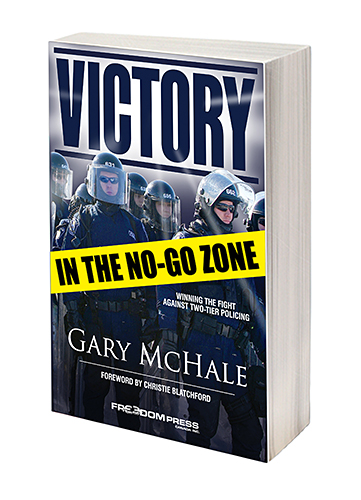
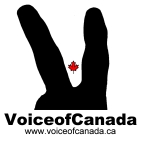

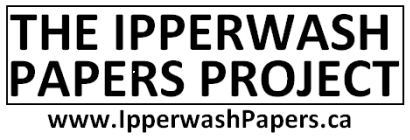
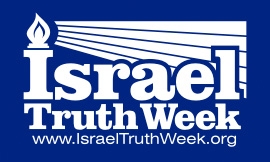

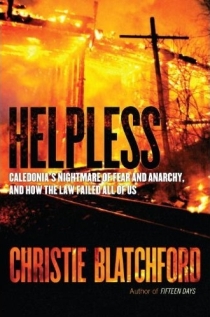

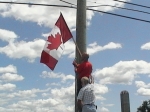



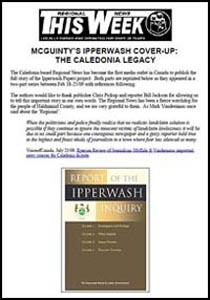


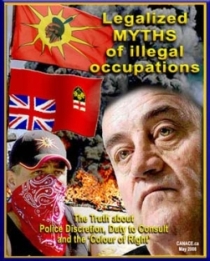
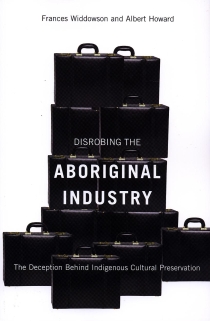
I thought an inquiry is supposed to unearth the truth. Apparently, it’s only supposed to uncover truths that are popular.
That’s an expensive white-washing of the facts. Reminds me of that Orwell book “1984”. Saying things that fly in the face of the truth.
VoC REPLY: Thanks for writing Dennis – 1st time you’ve written, I think, so I’m glad to hear from you. I remember reading “1984” and Orwell’s other book, “Animal Farm” – ‘All animals are equal but some are more equal than others.’
Re ‘unearthing the truth’ about Ipperwash – you ain’t seen nothin’ yet. Regards, Mark